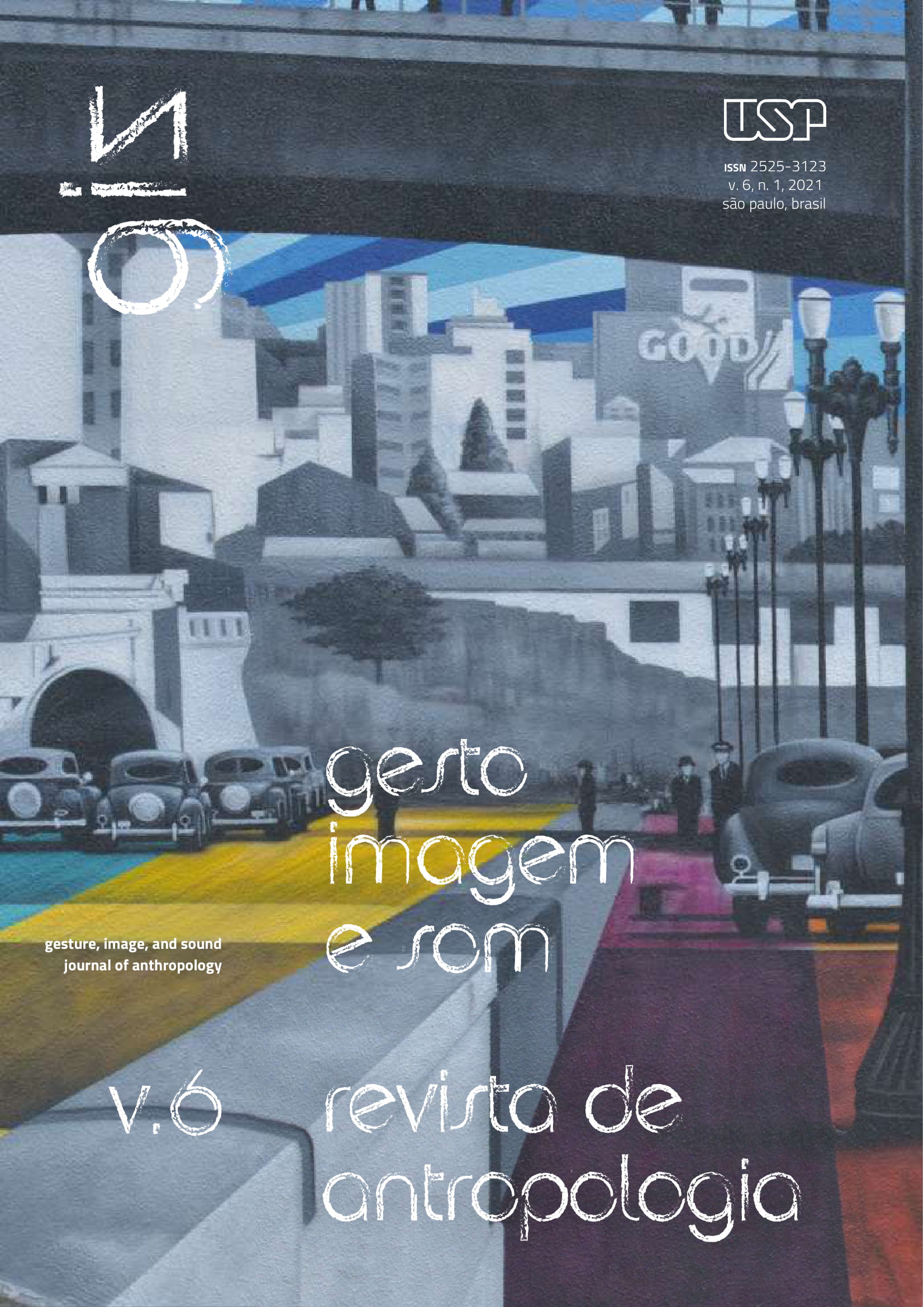Amaculo manihamba: canções de caminhar de mulheres de uma região transfronteiriça ao sul do continente africano
Resenha | Dossiê Musicar Local
DOI:
https://doi.org/10.11606/issn.2525-3123.gis.2021.176168Keywords:
Resenha, Musicar local, Angela ImpeyAbstract
In western Maputaland, a borderland region located at the juncture of South Africa, Mozambique, and Swaziland, Song Walking examines the politics of land, its role in memories, and its evolution. Angela Impey explores opposing accounts of this little-known strategic triangle, opposing textual narratives with the memories of an elderly group of women whose songs and daily activities bring subaltern narratives and points of view about the dynamics in the borderlands. Performed while traversing vast distances to the accompaniment of the mouth-harp Isitweletwele, Impey’s ethography finds in women's walking songs (amaculo manihamba) a myriad of impacts on property, livelihoods, and senses of location caused by internationally guided politics on transboundary environmental conservation.
This book ties ethnomusicological research to the broader themes of international development, conservation of the environment, gender, and access to resources for local economic purposes. Song Walking testifies to the affective, spatial, and economic dimensions of the place by demonstrating that development processes are essentially cultural processes and revealing how music can be used by silenced subjects for self-expression, while contributing to a more inclusive and culturally appropriate alignment between land and environmental policies and local needs and practices.
Downloads
References
Araújo, Osmundo e Livio Sansone. 2008. Raças: Novas perspectivas antropológicas. Salvador: EdUfba.
Arruti, José Maurício. 2006. Mocambo: Antropologia e história do processo de formação quilombola. Bauru: Edusc.
Bullerjahn, Maximilian. 2018. Colonialismo dual e formação do estado nacional: o caso sul-africano. In: Revista Brasileira de Estudos Africanos, v.3, n.5, p.153-174.
Ferreira, Andrey Cordeiro. 2013. Tutela e Resistência Indígena: Etnografia e História das Relações de Poder entre os Terena e o Estado Brasileiro. São Paulo: Edusp.
Foucault, Michel. The History of Sexuality. Volume 1: An Introduction. Londres: Penguin, 1990.
Haraway, Donna J. 2016. Staying with the trouble: making kin in the Chthulucene. Durham: Duke University Press.
Ingold, Tim e Jo Lee Vergunst (eds.). 2008. Ways of walking: ethnography and practice of Foot. Surrey: Ashgate Publishing.
Kopenawa, Davi e Bruce Albert. 2015. A queda do céu: palavras de um xamã yanomami. São Paulo: Companhia das Letras.
O’Dwyer, Eliane Cantarino. 2002. Os quilombos e a prática profissional dos antropólogos. In: Quilombos: identidade étnica e territorialidade, ed. Eliane Cantarino O’Dwyer. Rio de Janeiro: FGV.
Oliveira, Osvaldo Martins de. 2011. Comunidades quilombolas no Estado do Espírito Santo: Conflitos sociais, consciência étnica e patrimônio cultural. In: RURIS - Revista do Centro de Estudos Rurais - UNICAMP, v. 5, n. 2.
Mombelli, Raquel. 2014. Quilombos em santa Catarina e os 10 anos do decreto 4.8871. In: 29a Reunião Brasileira de Antropologia, Natal: Associação Brasileira de Antropologia.
Scott, James C. 1990. Domination and the Arts of Resistance: Hidden Transcripts. New Haven: Yale University Press.
Downloads
Published
Issue
Section
License
Copyright (c) 2021 Erica Giesbrecht

This work is licensed under a Creative Commons Attribution-NonCommercial-NoDerivatives 4.0 International License.
Authors who publish in this journal agree to the following terms:
a. All rights reserved for authors. Journal has right to first publication. Work is simultaneously licensed under Creative Commons Attribution License which permits sharing work with recognition of authorship and initial publication in this journal for non-commercial ends.
b. Authors are authorized to separately make additional contracts for non-exclusive distribution of version of work published in this journal (e. g. publish in institutional repository or as book chapter), with recognition of authorship and initial publication in this journal.







